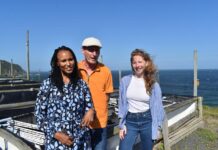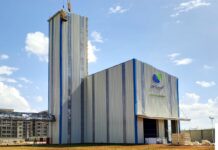The ability to adapt to the pace of change, to explore potential and to form partnerships is essential to increase investment in agricultural research across the African continent.
This is according to Russell Curtis, CEO of Invest Durban, who presented at a recent information session on the African Agribusiness and Science Week to be hosted at the Durban International Convention Centre from 5 to 7 June 2023.
At no time during our history has the pace of change been so rapid in many different areas, from agricultural inputs to technology advancements, market shifts and climate change. “To stay relevant, you need to adapt to change in the market much faster than your competition”.
The African continent, with 1.3 billion people across 55 countries, holds enormous potential. The effective implementation of the African Continental Free Trade Area (AfCFTA) agreement would remove barriers to increase intra-Africa trade and facilitate finance.
“Kwazulu-Natal (KZN), which is a major contributor to national agricultural production, has the highest remaining amount of arable land in South Africa. The Port of Durban is a major harbour for import and export of agricultural produce, and the largest and most successful port in sub-Saharan.”
“Southern hemisphere producers have a counter seasonal advantage when supplying for international markets in northern hemisphere, such as Europe, North America, and potentially the Emirates and Asia.”
“The potential in efficiency could reduce food losses from farm to fork by at least 50%,” said Curtis. “Greater value add through business and research collaboration could realise through scale, greater industrialisation, greater additional beneficiation of agricultural produce into health and industrial use cases.”
Curtis said it is essential that for government, academia, farmers, and the broader commerce industry form partnerships. One way is with greater deployment of formally structured clusters. Durban has a large number of cluster initiatives and programmes. Under manufacturing, the following are active: Durban Automotive Cluster, Durban Chemical Cluster, KZN Clothing and Textile Cluster, eThekwini Maritime Cluster, Agro-processing programme, and KZN Furniture Incubator.
“My advocation is to engage on high-level to build broader cooperation amongst AU member states and stakeholders for fast-tracking implementation of the Common African Agro-Parks (CAAPs). Not only for research collaboration, but business collaboration and further development.”
“The success relies on the AU, FARA, CODESA and the chambers of commerce working together. The outcome of the collaboration with agribusinesses must increase the value of our exports so that the continent can move up in the agricultural value chain.”
“This is only possible if we adopt an approach where we think of others more highly than ourselves, where we put more value on the table than we take off. Then we can explore the importance of the collaboration between government, business and research for developing agri investment across the African continent so we can feed our children and the planet’s children with confidence,” Curtis said.








